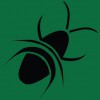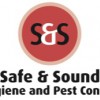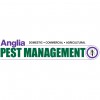
Problems with Flies, wasps, bed bugs, fleas, rats, mice, moles, rabbits, squirrels, birds or any other type of pest/vermin? Bury St Edmunds, Cambridge, Newmarket, Mildenhall, Red Lodge and many surrounding villages. Our professional and reliable service covers all public health pests across Suffolk, Cambridge, Norfolk and includes; Bury St Edmunds, Cambridge, Newmarket, Mildenhall, Red Lodge, Stowmarket, Ely, Soham, Lakenheath, Great Barton and surrounding villages.
Treatments are discussed with the customer. We understand that a pest problem can be stressful so our approach is friendly and positive. Our treatments are safe and will not cause harm to children or pets. Our services to commercial premises are designed to meet the requirements of each business. We cover a wide range of premises from schools, leisure centres, industrial units and stables to small retail outlets.
Our services to agricultural clients are tailored to meet their needs.
Treatments are discussed with the customer. We understand that a pest problem can be stressful so our approach is friendly and positive. Our treatments are safe and will not cause harm to children or pets. Our services to commercial premises are designed to meet the requirements of each business. We cover a wide range of premises from schools, leisure centres, industrial units and stables to small retail outlets.
Our services to agricultural clients are tailored to meet their needs.
Services
They are not a pest species and are HIGHLY protected by legislation in the UK under The Wildlife & Countryside Act 1981.
It is an offence to damage, destroy or obstruct access to any place used by bats for shelter, whether they are present or not.
999 Pest Control always ensure that their actions do not come into conflict with Bats or the legislation protecting them and will provide advice to owners and occupiers of bat habitats for free.
It is an offence to damage, destroy or obstruct access to any place used by bats for shelter, whether they are present or not.
999 Pest Control always ensure that their actions do not come into conflict with Bats or the legislation protecting them and will provide advice to owners and occupiers of bat habitats for free.
Six species of deer live wild in Britain today with a total population of around one million.
Most species are increasing in numbers and range, notably in lowland regions.
Deer live mainly in woodland but will regularly invade farmland and gardens causing damage to crops and plants especially young trees and seedlings.
Deer are an important part of our wildlife, and are attractive animals which people enjoy seeing in our countryside.
However, they must be managed to keep them in balance with their habitat and prevent serious damage to woodlands, trees, crops, gardens and other wildlife.
Most species are increasing in numbers and range, notably in lowland regions.
Deer live mainly in woodland but will regularly invade farmland and gardens causing damage to crops and plants especially young trees and seedlings.
Deer are an important part of our wildlife, and are attractive animals which people enjoy seeing in our countryside.
However, they must be managed to keep them in balance with their habitat and prevent serious damage to woodlands, trees, crops, gardens and other wildlife.
The North American Mink was first imported into The UK in 1929 for fur farming.
Since them as a result of escapes and deliberate releases of the animal it has become widely established in the wild.
Mink usually live near water, preferring places with dense cover which can provide den sites.
Mink will travel considerable distances from their dens in search of food.
They are usually nocturnal.
Mink are excellent swimmers.
Since them as a result of escapes and deliberate releases of the animal it has become widely established in the wild.
Mink usually live near water, preferring places with dense cover which can provide den sites.
Mink will travel considerable distances from their dens in search of food.
They are usually nocturnal.
Mink are excellent swimmers.
In the event of an issue 999 Pest Control will need to survey the area to determine the size of the problem and to enable us to offer the most appropriate form of control.
Descending from our native Rock Dove Feral pigeons have become extremely successful in colonising urban areas.
They have become dependent on humans for their food and this has led them to become serious pests carrying numerous diseases harmful to man.
Pigeons live in close association with people and usually roost and rest within or on buildings.
Descending from our native Rock Dove Feral pigeons have become extremely successful in colonising urban areas.
They have become dependent on humans for their food and this has led them to become serious pests carrying numerous diseases harmful to man.
Pigeons live in close association with people and usually roost and rest within or on buildings.
In the event of bird management issues 999 Pest Control will need to survey the area to determine the size of the colony, the nature of the nuisance and the most appropriate form of control.
Gulls have the potential to spread diseases in three ways (Air-borne, Food borne and Insect Borne disease).
Bird droppings not only harbour harmful pathogens, insects and mites but they are also very slippery when wet.
Gulls are becoming an increasing problem in certain towns, villages and cities attacking people for their fast foods and nesting on roof tops.
Gulls have the potential to spread diseases in three ways (Air-borne, Food borne and Insect Borne disease).
Bird droppings not only harbour harmful pathogens, insects and mites but they are also very slippery when wet.
Gulls are becoming an increasing problem in certain towns, villages and cities attacking people for their fast foods and nesting on roof tops.
Reviews

Be the first to review 999 Pest Control.
Write a Review




